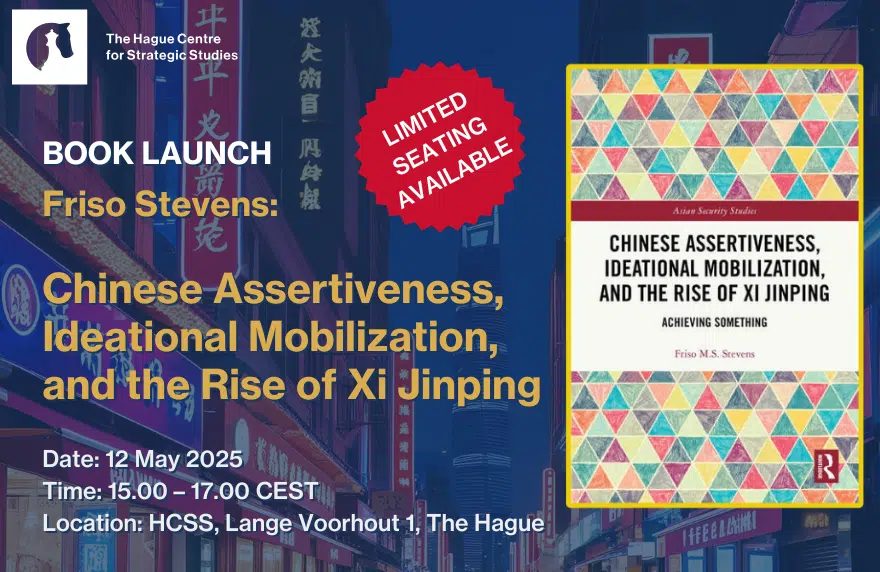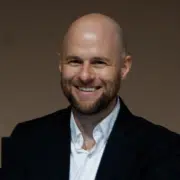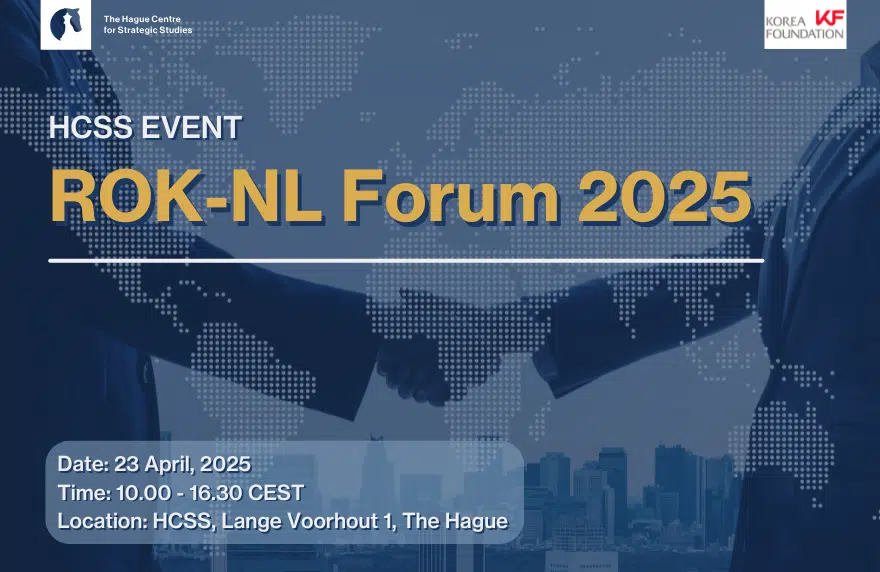On 12 May, from 15.00-17.00 p.m., HCSS fellow Friso Stevens will present his new book “Chinese Assertiveness, Ideational Mobilization and the Rise of Xi Jinping“, at HCSS – The Hague Centre for Strategic Studies.
Rather than viewing Xi Jinping as the sole architect of China’s more forceful foreign policy, the book examines the deeper historical, domestic, and leadership drivers behind China’s repositioning, arguing that Xi Jinping had a broad mandate from the Party establishment when he was elevated to heir apparent in 2007.
In the years of global turmoil that followed the 2008 global financial crisis, China’s foreign policy of the late Hu Jintao years came to be viewed in Western discourse as increasingly “assertive.” Displaying a certain cognitive dissonance, China, however, vehemently rejects this viewpoint. Especially after Xi Jinping rose to power in 2012, it is clear that China has abandoned its long-held foreign policy doctrine of “keeping a low profile.”
Analyzing how language has been produced and reproduced over time, this book explains the shift to a more assertive China by examining the intervening ideas about China’s desired place in East Asia’s regional order. The Chinese Communist Party propaganda offers compelling evidence that there is much greater continuity between the Hu and Xi eras than is exhibited in the current literature. Moreover, the book traces the deeper ideational sources of Chinese assertiveness back to the New Left movement and the Patriotic Education Campaign of the 1990s. Agency for the turn in the late 2000s and the selection of the compromise candidate Xi is attributed to the choices past leaders made, with some Party elders “ruling from behind the curtain.”
Join us for a discussion into the historical, domestic, and leadership drivers behind China’s repositioning!
📅 Date: May 12, 2025
⏲️ Time: 15.00-17.00 p.m.
📍 Location: HCSS, Lange Voorhout 1
Friso Stevens
Friso Stevens is a Nonresident Senior Fellow at The Hague Centre for Strategic Studies. Previously, he completed postdoctoral fellowships at the European University Institute and the University of Helsinki. While writing his doctoral dissertation at Leiden University, Friso taught at the Vrije Universiteit, his alma mater in Amsterdam. Educated as a lawyer and political scientist, he also studied at Northwestern University, Peking University, and King’s College London. His work has been published in The Pacific Review,





